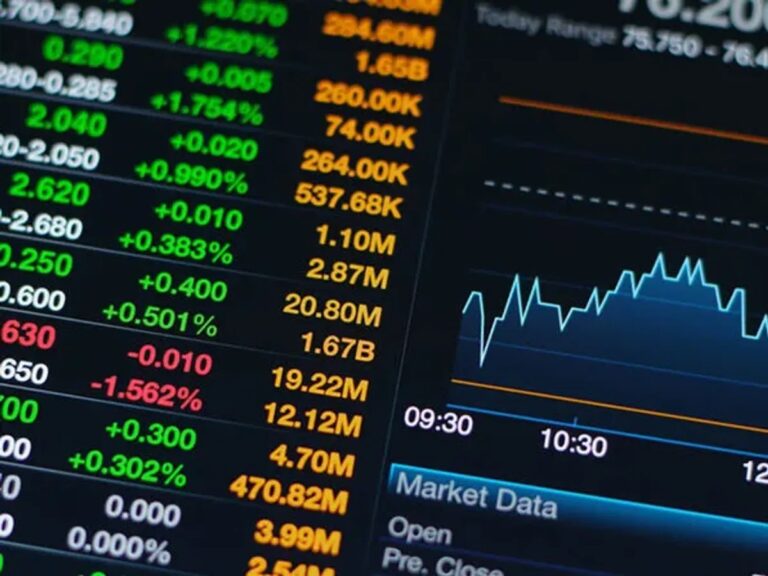Introduction
In today’s digital age, the world of finance and investing has undergone a significant transformation with the advent of social media. One of the areas profoundly affected by this technological revolution is stock trading. Investors and traders now have unprecedented access to real-time market information, news, and expert opinions through social media platforms, all from the convenience of their online trading accounts.
Overview of Stock Trading Accounts and Their Importance
Before we delve into the influence of social media, let’s first understand the significance of stock trading accounts. An online trading account is a virtual gateway that empowers investors to buy and sell financial instruments, such as stocks, bonds, and derivatives, through the internet. These accounts have revolutionized the investment landscape, offering convenience, flexibility, and ease of access to global financial markets. Investors can now monitor their investments in real-time, execute trades swiftly, and take advantage of market opportunities from the comfort of their homes.
Impact of Social Media on Stock Trading Accounts
In recent years, social media has emerged as a dominant force shaping stock market trends and influencing investment decisions. Platforms like Twitter, Reddit, and financial-focused forums have become virtual hotspots for discussions on stocks, investment strategies, and market analysis. Traders and investors now turn to these online communities to stay updated on market sentiment, discover potential trading opportunities, and assess the overall market mood.
Amid this social media frenzy, the phrase to open trading account is frequently encountered as enthusiastic users encourage others to embrace online trading and explore the vast array of investment possibilities available at their fingertips.
Behavioral Factors and Emotional Influences
The impact of social media on stock trading goes beyond the dissemination of financial information; it also significantly affects investor behavior. Cognitive biases play a vital role in shaping our financial decisions, and social media can exacerbate these biases. Investors often fall prey to herd mentality, blindly following the crowd and making impulsive decisions based on others’ actions, leading to a cascade of emotional contagion.
Fear of Missing Out (FOMO) and the insatiable greed for quick profits can drive investors into making risky trades without proper analysis. Social media platforms, through their constant flow of news and opinions, can heighten these emotions, leading to excessive trading and erratic decision-making.
Role of Social Media in Fostering Investor Sentiment
Social media platforms have become breeding grounds for investor sentiment, creating a unique opportunity for traders to gauge market reactions and anticipate potential price movements. A single tweet from a prominent figure or a viral post about a company can cause significant fluctuations in stock prices, sometimes even triggering a buying or selling spree. Understanding this sentiment-driven landscape can provide traders with a strategic edge.
Regulatory Framework for Social Media and Financial Markets
The rapid integration of social media into stock trading has not gone unnoticed by regulators. To safeguard investors and maintain market integrity, there is a need for a robust regulatory framework that addresses potential risks and misconduct associated with social media-driven trading. Measures are required to tackle misinformation, market manipulation, and fraudulent activities that could adversely impact stock prices and investors’ confidence.
Mitigation Strategies and Risk Management
As with any new frontier, there are risks and challenges associated with the use of social media in stock trading. However, there are also ways to harness its power while mitigating potential downsides. Investors can adopt risk management strategies, diversify their portfolios, and avoid making impulsive decisions solely based on social media trends. Staying informed and critically analyzing information from multiple sources can help traders make well-informed choices.
Social media’s impact on stock trading accounts is undeniable. It has revolutionized the way investors access information, communicate, and make investment decisions. As the landscape continues to evolve, traders should navigate the behavioral and emotional influences with caution. Being aware of cognitive biases and the role of social media in shaping investor sentiment can help traders develop a well-balanced and informed approach to stock trading.
To embrace the future of trading and capitalize on the power of social media, traders can explore the best trading app in India. These platforms provide intuitive interfaces, real-time data, and advanced tools to help investors stay ahead of the curve and navigate the complexities of social media-driven trading successfully.
While social media has opened up exciting possibilities for stock trading accounts, it is essential to tread carefully, employ critical thinking, and use reliable sources of information to make sound investment decisions. By combining the vast potential of social media with the right trading tools, investors can chart a path towards successful and informed trading in today’s dynamic financial markets.

